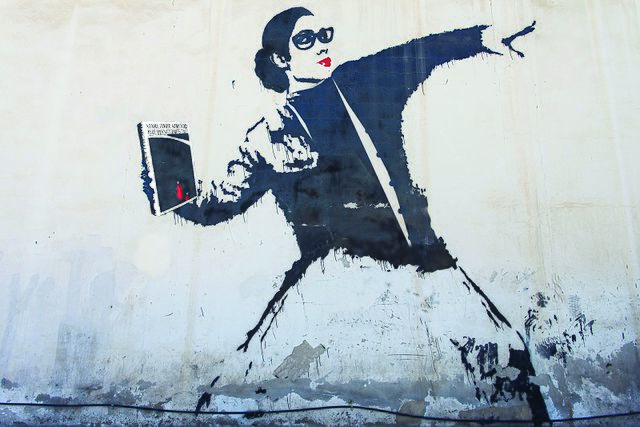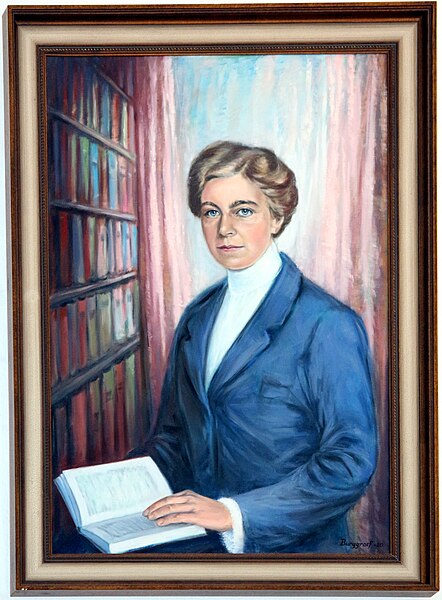The Thammasat University Library has newly acquired a book about the increasing importance of libraries in our time. BiblioTech: Why Libraries Matter More Than Ever in the Age of Google deals with subjects that may be of interest to TU students of social science, education, law, journalism, communications, and related fields of study. It discusses social aspects of libraries and the internet, information networks, electronic publishing, digital preservation, and the effect of technological innovations on librarians and readers. The book is shelved in the General Stacks of the Pridi Banomyong Library, Tha Prachan campus. Its author is John G. Palfrey, an American educator and law professor. He has written on the legal aspects of emerging media and is the former director of the Harvard Law School Library. He was also the founder of the Digital Public Library of America (DPLA), a project to provide public access to digital holdings, creating a large-scale public digital library. As its website states,
The Digital Public Library of America empowers people to learn, grow, and contribute to a diverse and better-functioning society. We do this by maximizing public access to our shared history, culture, and knowledge. DPLA connects people to the riches held within America’s libraries, archives, museums, and other cultural heritage institutions. All of the materials found through DPLA—photographs, books, maps, news footage, oral histories, personal letters, museum objects, artwork, government documents, and so much more—are free and immediately available in digital format. The cultural institutions participating in DPLA represent the richness and diversity of America itself, from the smallest local history museum to our nation’s largest cultural institutions.
The TU Library also owns another book co-authored by Dr. Palfrey, Born Digital: Understanding the First Generation of Digital Natives. It is about social aspects of information society and technology, as well as digital media. Born Digital is shelved in the General Stacks of the Puey Ungphakorn Library, Rangsit campus.
Among other books which he has written or co-written which are available from interlibrary loan are Access Denied: The Practice and Policy of Global Internet Filtering; Access Controlled: The Shaping of Power, Rights, and Rule in Cyberspace; Intellectual Property Strategy; and Interop: The Promise and the Perils of Highly Interconnected Systems. Basic Books.
In BiblioTech: Why Libraries Matter More Than Ever in the Age of Google, Dr. Palfrey argues that especially in our time, libraries are more important than just places to store books. Instead, libraries can solve social problems such as unequal access to education, jobs, and information. Ideally, libraries make this essential information available to all people, regardless of income and social status.
Dr. Palfrey suggests that libraries help people be informed and involved citizens. Also, since readers are in libraries to buy things, libraries are rare places in modern cities that are not commercial spaces. To follow in this tradition, he recommends that librarians
pursue a new strategy that will shape, rather than merely react to, the digital revolution.
This means that search engines, online retailers and social media are providing reading material to people who in past years might have gone to a library to find information. Dr. Palfrey explains that budget cuts endanger libraries:
If we do not have libraries, if we lose the notion of free access to most information, the world of the haves and the have-nots will grow further and further apart. Our economy will suffer, and our democracy will be put at unnecessary risk… The private sector has been wildly successful in digital innovation. . . . When it comes to the cultural, historical, political, and scientific record of a society, however, the public sector needs to play a leading role… For centuries, libraries have remained essentially separate, even competing with one another to establish and maintain the greatest collection,… recast[ing] themselves as platforms rather than storehouses.

To better react to a world where many people, especially students, rely on Google to get information, it is important for libraries to cooperate more with each other, instead of competing. He notes that in South Korea, Singapore and Europe, libraries have already become more cooperative, even across national borders:
Libraries must act as ambitiously networked institutions… connect[ing] their network effectively with partner institutions: archives, historical societies, museums, and other cultural heritage organizations… Most of the innovation in how we create and use knowledge is occurring in the private, for-profit sector. Funded by ambitious venture capitalists and pursued relentlessly by entrepreneurial CEOs and their programming teams, the start-up scene has been cranking out successful new information-related projects for decades.
In addition to Google providing information and reading material as a search engine, there is also Amazon’s Kindle, Facebook, Twitter, and Apple’s apps platform. It is not a good idea to rely too heavily on large corporations for providing reading material to students, he notes:
The risk of a small number of technically savvy, for-profit companies determining the bulk of what we read and how we read it is enormous. The great beauty of the rich, diverse library system that has developed over past century and a half has been the role of librarians in selecting and making available a range of material for people to consult and enjoy. No one pressing an ideology can co-opt this system; no single commercial entity can do an end run around the library system in the interest of profit.
How can libraries compete financially with major corporations? Dr. Palfrey suggests that corporate funding may be one answer. He points to the past example of the Carnegie libraries in Europe and America, built with money donated by the Scottish businessman and philanthropist . 2,509 Carnegie libraries were built between the 1880s and 1920s, including some public and university libraries. Over 1,600 were built in the United States, more than 600 in the United Kingdom and Ireland, 125 in Canada, and others in Australia, South Africa, New Zealand, Serbia, Belgium, France, the Caribbean, Mauritius, Malaysia, and Fiji. The TU Library owns a copy of the The Autobiography of Andrew Carnegie. It is shelved in the General Stacks of the Pridi Banomyong Library. Libraries were essential to the success of Carnegie, who was born in Scotland and raised in the Pittsburgh area of Pennsylvania, USA. As he revealed in his Autobiography, Carnegie relied on libraries to provide opportunities for working young people to learn and improve their social status. As an immigrant, Carnegie believed in a society based on merit, where students who are willing to work hard have a chance to be successful. That is what motivated his generous gift of so many libraries to different countries around the world.

(All images courtesy of Wikimedia Commons)

